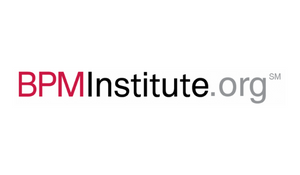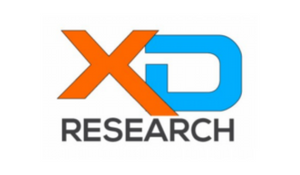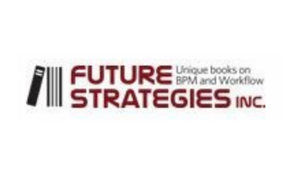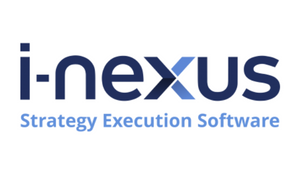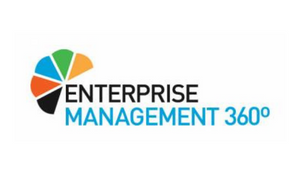

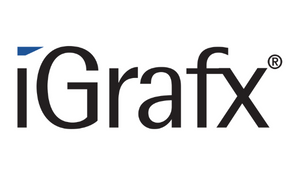
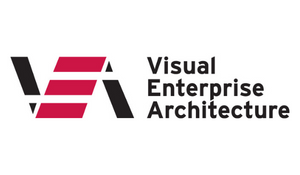
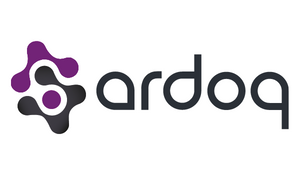
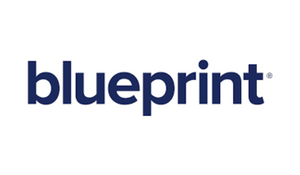
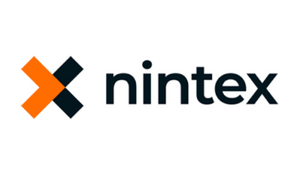
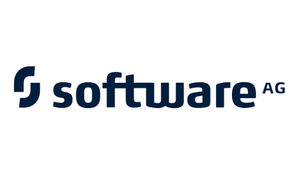


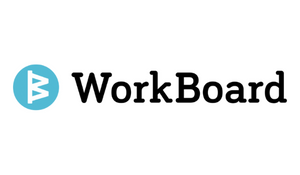
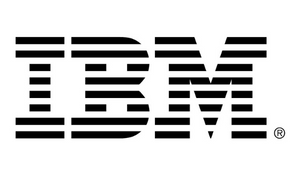


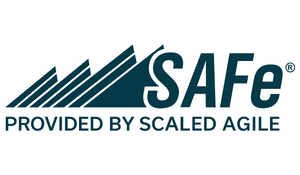











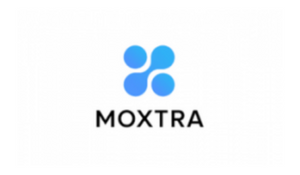
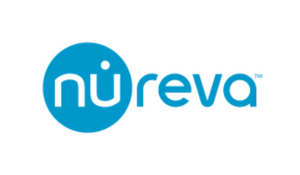
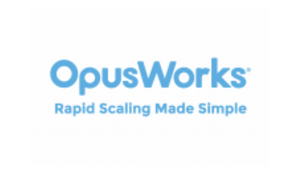
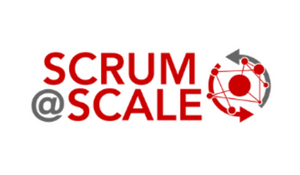
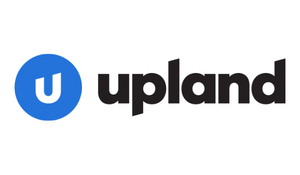

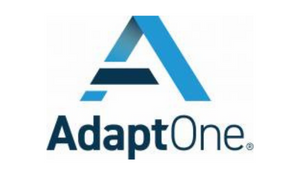
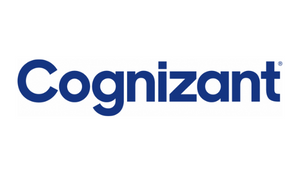

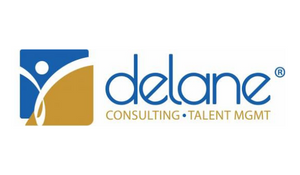

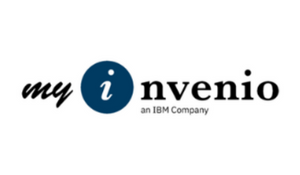

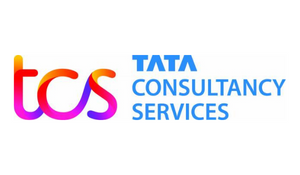
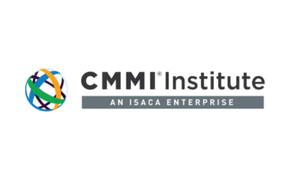
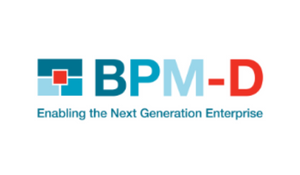

Courtesy of Dell's Bill Wong, below is a transcript of his speaking session on 'AI-Powered Digital Transformation' to Build a Thriving Enterprise that took place at the Business Transformation & Operational Excellence Summit in Financial Services Live.
-2.png?width=300&name=BLOGS%20COMPANY%20LOGO%20(74)-2.png)

Session Information:
AI-Powered Digital Transformation
AI is fundamentally changing how businesses operate, redefining the way people work and transforming industries globally. In pursuing digital transformation initiatives, organizations need to capitalize on the opportunity with intelligent algorithms and models, improved processes, a data-centric culture, and an optimized software and hardware infrastructure to realize its full potential.
Gain an understanding of best practices for digital transformation initiatives and how AI and data analytics can be leveraged to deliver business value. Review the latest trends and directions in the AI industry, key challenges, and best practices for adopting AI-based solutions.
Topics include:
Session Transcript:
He's coming from beautiful Toronto in Canada today. He is a global, cross industry expert on artificial intelligence. He has spoken multiple times in our conference and we are all is enriched by his perspectives talking about belong. He's here with us.
Bill is an AI and data analytics practice leader at Dell Technologies, responsible for supporting banks and insurance companies. Fintech, cryptocurrency, and blockchain farms. He has been directly involved with a number of public and private institutions to help them define their AI strategy and deploy a platform to accelerate business insights.
He publishes a quarterly AI newsletter, a contributing author with researchers from a Canadian university, for our paper on how deep learning algorithms can accelerate the drug discovery process, and has also written numerous books and white papers on the top of analytics and best practices.
Bill, it's always a masterclass When you talk about artificial intelligence, you know the difference between high and reality and you would do a wonderful job of communicating that to the rest of us.
Thank you for being here.
Can you share your expertise today?
Well, thank you, Joe, Zany, thanks for the warm introduction, Hi, folks, from Toronto, Canada.
As you can see in my first slide there, that's tried to in the evening, and I hope we can all see each other soon in person.
So, I'll be broadcasting from Toronto and today's topic.
Will be digital Transformation Financial services.
Through analytics, advanced analytics, I'll focus quite a bit on AI.
Take you through some current trends and directions that we're seeing in the industry.
Then talk about the ecosystem that people are building, especially in financial services, to deliver their AI initiatives.
And then, we're seeing a lot of firms tackle the multi cloud world with AI, and we'll talk about some of the best practices there.
So just a little plug about Canada.
And if you haven't been up here, Canada is well known in the AI world, although we have kind of a low key profile as we are typically out there in the world.
But when it comes to AI, you see the ACM Turing awards, there Geoffrey, Hinton, Yoshua, Bengough, down we're cool, very prone, AI people.
If you talk to the CEO of Nvidia, Q will say that, the big boom, where, what he calls the big bang of AI that sparked this growth and interest of recent years really occurred.
In Canada, through the imagenet contest 2012 where they researchers, there, led under Geoffrey Hinton for the first time, use neural networks, deep learning algorithms, on a GPU platform, and just move away the competition on image classification.
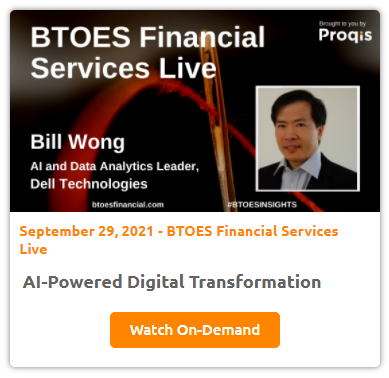 So that helps find this huge industry that we're in right now. We'll talk about where we're at.
So that helps find this huge industry that we're in right now. We'll talk about where we're at.
Now, regards to digital transformation.
I think everybody will acknowledge here on the left of the slide here that certainly the pandemic has accelerated a lot of initiatives and on the right here these are some of the top initiatives not surprising. Security's always the number one thing I've seen companies invest in it.
And, 2 and 3, usually.
While it's not on this, this one, it's typically Cloud initiatives and AI.
And, quite often, I see AI exceed our Cloud Initiatives in this survey that we did last year, across 4000 C level executives.
The use of data in completely new ways.
It's the top five here.
Now, some of the barriers that people highlighted in their digital transformation initiatives did privacy, always a big concern. Lack of budget and resources, I see that often as sometimes leaders not understanding.
Yeah, the benefits of driving these initiatives, especially in AI, still kind of new for some some of the execs out there.
Then, the last point here is the ability to produce insights.
And we'll take you through some of those challenges and the best practices.
Now, before we dive into AI, I had the opportunity to speak at another one's Copses Touche was leading and talked about business process management, roadmap, robotic process automation, and AI, And you can think of this as a continuum.
Automation.
Now, the first two, BPM and RPA are really process centric and RPA. I see a lot of financial institutions, it's kind of the low hanging fruit. We want to automate repetitive tasks.
Wow, BPM, not not as as perhaps easy to find, but certainly it gains there as you orchestrate people, process, and data.
Now, when we talk about AI and it does automate things and what it's trying to do is simulate human decision making.
Now, unlike RPA and BPM, this is very data centric.
And data is a critical success factor, critical input here and output for AI to function properly.
And I guess one last word about here, when I was starting to see now, and a lot of financial services firms is, problems are, are getting more complex, tasks, are more complex, and you're seeing an integration of these tasks.
 So integrating RPA with AI, we're a RPA make, call it AI to do particular tasks, same with TPM, so that is interesting and challenging.
So integrating RPA with AI, we're a RPA make, call it AI to do particular tasks, same with TPM, so that is interesting and challenging.
Sure.
Uh, this is the Gartner hype Cycle that is put out every year, and I believe this came out just just less than a month ago, so hot off the press.
And I was taking a look at the technologies you see on the top half of your screen here.
And I pulled out on the right here, all the ones that are AI related.
And about maybe a quarter of them are all AI related.
And there are other hype cycles where AI is quite dominant.
And if you were to categorize all of these emerging technologies here, you could probably put them in kinda three buckets or themes here that you see on the bottom. Engineering trust, accelerate growth, sculpting change.
So from an AI perspective, the engineering trust is to try to introduce technologies that will make things more secure and scalable, things like a data platform, or data fabric.
Accelerating growth are those technologies they believe that will contribute to an organization's business growth.
So if I take an example here, like Industry Cloud, you're starting to see some of the vendors introduce a Cloud by vertical.
So a cloud specifically tuned for, let's say, health care and health care is an industry that is it's quickly adopting AI.
Then on the right there, what they call sculpting change is really trying to make AI more flexible.
The challenge with AI is, it's totally dependent on the data that you put in it, and it's not smart about the environment.
So, very complex things, like weather or climate, things that you would think the obvious when doing simulations is not so obvious to an AI model. Only knows the world from the data you give it.
So, you were trying to build models that take it in consideration the environment, So, for instance, I've worked with a number of firms, were physics augmented, faces inform AI, so that it knows that gravity exists, that things fall down.
Those kinds of things that we take for granted as humans are things that they're trying to build.
Those are kinda general intelligence into future AI programs.
Now, getting back to where the rubber boots road in financial services, I've taken the liberty of identifying some of the popular retail banking use cases and customer examples there.
These are well-known. Thanks, Sarah. But, really, everybody is doing this.
And I would say that customer engagement is probably number one, at least, I've seen in Canada US, where, where you are retail banking.
That's where a bulk of the research implementations are being OpenStack operations.
Well, while it's still a focus area, it's probably the easiest ones to cost justify.
This is where we see technologies like RPA, you integrated with AI to do.
Then also risk and compliance, very important piece, benefits that financial firms can get by using AI to detect fraud.
This is an example of a customer that my firm has had experience working with mastercard.
And I share the story here because in one of the presentations I delivered pre pandemic in person.
I had a mastercard holder in the audience there and he said, related a kind of a funny experience where he use just mastercard to buy some food.
And then, just before trip and who's going from Ottawa to Montreal, it's about a four hour drive.
then, Harkness car. And then, he stopped midway. And most people, will soft midway to fill up with gas. And as he filled up with gas and went to the attendant, tend to reject it was curve.
And so, why?
And, and so he called the credit card company, He said, Listen, I just use this two hours ago. And now you're saying, You're rejecting. You, are Dash.
And we, person at mastercard said, well, yes, it's true. I do have a record of buying some snacks in Ottawa.
But technically, it's really impossible that you're at the midway point to Montreal.
Yeah, and it's only like in the next 90 minutes and he kinda laughed and josefine gottman.
I was speeding, I shouldn't be doing that and, uh, no problems about the false positive.
So, those algorithms are being built into overpayment providers.
So, these companies here are well-known tech companies, You probably may not recognize that symbol on the bottom there, and asks you, what do they all have in common outside of being pretty ubiquitous type brands?
They're all getting into the chip business.
And when we take a look at chips, or what we call AI accelerators, these are chip technologies that you use to power AI models. On the far left, CPUs are well-known and dominate by Intel and AMD.
The GPU processor or chip introduces a vast amount of capability to do parallel operations.
So that's kinda the key differentiators of GPU and a CPU.
So if you want to do, like high powered graphics, to do that, you will be the parallel processing of the number of vectors. And the best way to do that is to do that in parallel.
So Nvidia has made quite a name for itself there.
And it's really the dominant AI provider or GPU based servers field programmable gate arrays.
And so, this is kind of the firmware that you can code a little more flexibility as, as we move toward the right, I see these in kind of niche areas like finance and manufacturing.
And so I relax and you can tell our providers.
And then finally, on the far right here, Basic.
Are application specific Integrated circuits. See, a lot of players coming here.
That's, well, the startup players are coming into.
These are chips that are specially designed and to perform a particular task.
So remember, the cryptocurrency market, those chips. They could only do that.
And, and so the IOT IOT devices that you see out there, they're going to build intelligence into a very small, inexpensive CIT.
So the good thing about it is, these are inexpensive, less power, being highly optimized, great performance.
On, yeah, kinda the weighing factor, they said that that's all it can do, that, that's all it's been designed to do.
So, let me correct. So as you move toward the left, you get to more generalized chips, so so I Linux until, well, you can code firmware. Not so friendly.
 The easiest thing to do, TPUs, a, little more flexible there.
The easiest thing to do, TPUs, a, little more flexible there.
Great ecosystem, but the most flexible you have is the Intel AMD. However, as you go toward the right to, toward the right, get better performance. So there's a tradeoff there.
So the screen here, showing a GPUs CPUs, and financial firms are all building big GPU turn in ecosystems.
So what I thought I would do is, you know, I went to my customer base to take a look at what they're all built in.
Um, and some people are bidding low power GPUs for the edge on the far left, And as you move toward the right, these are things that have been well used, well understood in data centers today by this kind of new for GPU based computing.
So it's VDI.
Are virtual desktops and then GPU virtualization. So this is still something relatively new to folks that can we do it. But they're getting into it in a big way now.
Data analytics is kind of still a new area, but more and more of the software out there is being rewritten, like Spark to be optimized to run on GPUs.
AI is really kind of a sweet spot, or for GPUs today, right? As you can see, there's this whole spectrum, So most of the focuses there continues to be.
Then on the right, especially in financial services, we see some of the leading edge financial firms using GPUs for simulations, Monte Carlo analysis, research, and media achievement that surprised me, continue to use this technology.
Now, my friends and Nvidia provide me the results of the recent survey. They did a couple of months ago.
Not surprisingly, singly AIs are very important financial services.
And many are citing that it's contributing to revenue growth.
The interesting thing that I've found, and just kinda reaffirms what we're seeing out there is the use cases.
So for fintech's and investment firms, what we're seeing is algorithmic trading, talk a little bit more about that five protection portfolio optimization.
So replacing humans or augmenting humans, actually, it's probably a better term to use for financial services, such as insurance companies and banks, fraud detection, big.
But the number one use case, still I see up there is a sales and marketing optimization. The customer 360.
And recommender systems, every time I go to, I think they always say, Do you know that you don't have one of our credit cards?
That's probably not doing that, or a simple rule based thing.
But um, yes, like many recommender systems out there.
Now, when they asked these financial services, subject matter experts and executives, and this is a worldwide survey that they did, they cited that there's still too few data scientists, I guess I would have to agree with that.
I've seen that the technology infrastructure is still challenging.
And then, the lack of data.
And I'll qualify that financial services has tons of data.
What the struggle and challenge is, this is the right kind of data that they need to make these decisions.
Now, on the bottom half of the screen, what you see is kind of the things that are the big benefits that are driving AI.
And if you take a look at fintech and investment firms, why they want this AI platform is to build a better prediction model.
You get to high bars there.
But if in retail banking, the benefit that they're really driving, number one, is, on the far right there, that gray bar is operational efficiency.
So despite Customer 360 is still being dominant, the biggest fan they've seen is doing things faster, better, cheaper.
Now, getting back to algorithmic trading, here's a little history.
Some of the algorithms that were used over time. So, in the eighties, very simple, rule based, naive, small data, and statistical analysis time series analysis. Then we'll get to two thousands.
We started using much more complicated algorithms, do science algorithms, and then passed to us in 12 cheaply.
And, again, the financial service industry is probably one of the leading industries when it comes to using analytics overall.
And what we're seeing is, again, as I said before, integration of automation, where we see RPA and AI being used together.
What you're starting to see now is also like high-end simulation with boats and AI, uh, a data pipeline being created. So it's not just, oh, AI will solve my problem, or doing the simulation tool.
Well, I'll get my risk analysis there, combining these algorithms together, So it's very interesting, very complex things to do, and the banks have the initiative and funding to do these kinds of things.
So how that's impacting the industry is that we're seeing this integration of high-end HPC analytics with AI and the side chart, left-hand side, showing that this is the growing market, on the right hand side.
If you talk to the technology people, there are struggling a little bit with this.
If you've worked as simulation environments of HPC environments, this typically has come from academia, type of research, tools like Swarm.
A singularity are not typical data center type tools. People are familiar with in financial services that's more from academia.
But if you want to do state-of-the-art simulation, those are the kind of tools you're using.
So what the IT vendors are being challenged to do is, can we build an infrastructure that can combine these academic tools with things like Docker?
Kubernetes are things that the AI people use, and, and it is starting to come out.
So a plug for Dell will save create an open source code call omnia that allows you to integrate these environments.
Now part of the ecosystem here is, well, how do I develop my EMR?
On the left-hand side, here are very popular tools Gartner's Magic Quadrant of the Alevi Machine Learning platforms.
Now on the right hand side, what they decided to do is to build one magic on chess for the hyperscale cloud vendors, on their machine learning platforms, so that they can be in the upper right-hand quadrant.
Because if you take Google, you take Microsoft Azure to AWS, sage Maker, and compare them against the on prem tools, they all, just, they land in the bottom, great project.
There are viewed as visionaries but not so it's it's a nod that the on prem tools are so kind of the better tools.
Um, part of the ecosystem, and probably one most critical things is the data platform.
And as you build this, for AI models, you need a way to ingest data.
Keep it there in its raw form, Transform it into something that's usable.
And then, optimize it, Put you on a platform where your users on the right content quick access to that.
This is probably 80% of total your AI application.
Certainly, building a model is important.
But, most of the day, scientists say, no, spend 80% of the time China optimizes.
Now, Financial Services is probably one of the leading industries in leveraging what source alternative data.
So these are data types that people still aren't sure what the value is.
Many firms out there believe that there is value.
And if you want a leg up, let's say, analyzing future activity of a company, its potential stock price, et cetera, people are using satellite imagery at night to see if the lights are eye.
.png?width=742&name=Screenshot%20(4).png) You're getting some wild use cases out there.
You're getting some wild use cases out there.
So some may say it's all speculative.
But many are saying either some of these things, do you have marriage there?
And so the data's categorized as they're immature to, to very mature.
But it's a growing market.
And, not surprisingly, financial services is the leading industry, in assessing this, this type of data and incorporate into their models.
Now, this is just a landscape I've put here for your reference.
This is certainly not a complete list, but these are some of the more prolific industry, vertical applications out there.
So, on the far left here, we have streaming type applications, So, more and more, people are taking the real-time data. So, financial services. Perhaps it's sentiment type data.
And then, the next use case here is to use augmented analytics and essential data store, often as a data warehouse.
But there are new technologies through augmented analytics, vendor like Fox Spot that's using Google type of Analytics, speech recognition, and and 2 2 to perform their queries in the background.
As you move toward using other data types, unstructured, data takes video audio irritate. People are building these data lakes and the number of vendors or solutions they're filing, or Machine Learning.
There are several tools out there to show it, to help you automate this.
So, we can kind of take a pause here.
Here's the challenge here.
If you're in this industry and work on AI, on one hand, a lot of people are, say, I don't have the right kind of data, I need more data, and then on the other side, what we hear why people saying is, they can't handle, so it really kind of, depends, depends on, I can't say that this is the State of the nation. I hear both sides.
I am seeing now, is that, you know, dial it back about five years. Everybody had a cloud strategy, so do.
And every, many firms are just throwing every single McLeod everything's kind of on the cloud.
But I think, today, what we're seeing here is a more thoughtful approach is where made it the cloud isn't the one be all end all platform.
And maybe we don't want to put a 10 petabyte type of data application.
And so people are stepping back, taking a more business approach of saying, OK, does it make sense?
And one of the key criteria that they take a look at is where does that data, best side, what kind of requirements, should be considered.
I'm going to go a little quicker, so I can end on time, but public cloud adoption should be no surprise. At AWS. Azure cloud are the top three.
It may surprise many, and this is something I predicted in a previous presentation I delivered, which shows a was v.m-ware Cloud is now the fourth most common cloud.
And and what people are building now are multi cloud and AI combining these two, I guess, pivotal technologies that are involved in many digital transformations.
Now, going forward, I see very few firms saying, everything will be on prem and see also, very few, from saint, everything will be on one cloud.
What, what we're seeing is multiple Clouds, and typically with on prem, as well.
And so these are some of the benefits that people are saving from this approach, access to data.
So rather than Consolidators, just kind of keep the data where it is.
Now, for the people starting off, access to GPUs, because GPUs are not as inexpensive as CPUs, So some people aren't going to cloud there.
But in the long run, if you're going to do heavy duty training of models, it is much less expensive to train on track.
So, I would qualify the third point here, where people are saying hybrid cloud provides better development platform.
I think it gives you a better development environment, if you have the option of having training data on prem and having your trained model running up in the cloud.
This is for your reference. We don't have time to go through this, but I've put this together to identify the key analytics offerings.
With advanced analytics, machine learning from AWS, Azure cloud, put in what Dell offers, and then on the far right, party, open source.
So, many things to consider, and I can certainly tell you, there's nobody that is the best at all, and so the multi cloud AI, it does make sense and try to leverage the best of all worlds, or your inbar.
Um, this is, uh, what I'm also seeing with firms here, in trying to accelerate development, a model driven approach here, focusing on the bottom here first, using Platform as Service, to lay out that environment.
And this new technology, starting to see at many firms, is Data Catalog.
 There are few ones, Bloom's just one example, and so what it does is go to a repository.
There are few ones, Bloom's just one example, and so what it does is go to a repository.
So, a person coming into the environment, the self-service environment, to say, OK, what data is out there?
Can I get access to it? That's what your data catalog, right?
Uh, say, here in the ton, that left here.
As you build these AI applications, consider these qualities of the data upfront. Don't think about this at the end, and, by the way, we've got to make secure.
30:56
These things have to be part of, ahead of time, privacy, ethics. How is the state is going to be used before you build your model?
And the approach to build the model.
And one of my past lives as an enterprise architect, and still enjoy that world, and this is taken from tau Gaffe.
And I modified it for, for building AI.
It really, it starts and hugging vision strategy the technology, fairly standard in trying to assess your current suit possible.
But as you build your roadmap, very important to cost, justify this and to build kinda increments, again, that don't go for the Big Bang.
Uh, be able to incremental deliverables.
A plug here for a resource that I use often is the HBC AI Innovation Lab, just outside of Austin.
It has our cluster of AMD, Intel and Nvidia GPUs there.
So I've I've consumed 100 GT cars for one customer to advance their research.
So, and it's, it's a resource I used to help data scientists and other firms optimize, you know, their algorithms and better identify kind of what the right platform going forward.
And, yes, if usable by other customers as well.
So the future does look promising.
It's a survey that we hired or some consultant to do.
So more and more, machine learning will be used.
And anomaly detection, fraud detection, a big use case, The data as a service model, the use of data catalogs we'll get into more more popular and investments in improving the digital.
Mmm hmm.
Here's my last slide here.
So just to summarize some of the best practices we see from successful firms of Implanted AI is that, nothing against the M, R, K, and P PM's.
But for AI to succeed, you have to have a data driven culture.
Cheap data, as an asset, I guess.
The The concert, I hope, now. Some of the firms, as well, AI, is taking off.
The AI, sir, themselves, become an aside.
And there's opportunity there, too, to consolidate each of the data that they use.
So probably a near term thing that we're going to start seeing when AI gets much more prolific is 2 to 2 to make it easier to make it as a shared resource. Because everything's still kind of new for AI and the optimal optimal infrastructure.
Adopt an architectural approach, as I showed you, for that, that slide, as an enterprise architect, have a strategy.
Have their vision of, what are the reasons, what are the business outcomes, that your driver?
And, and let it be known that each AI application, and so you move J unto itself.
So that finishes the presentation part, Jose.
That's terrific, but there's always a master class with you.
How about artificial intelligence and the applications, you know, really, across multiple industries?
And now, you know, this, focus on financial services today. I'm going to ask you, unless you have some family up ethics, you want to share. Yeah, I was going to ask you to stop sharing the screen there, and I'm going to jump in here on some questions and themes that emerged from the audience.
And, uh, the very first one has to do with the definition of AI now. This is some of the audience have had, have watched your presentation before, and they all, as I appreciate it, so much.
And, I want to get to some of the basics here.
There seems that nowadays become trendy to call. maybe, more advanced modeling and data analytics, artificial intelligence.
And so, where is the lie, where, where, where does advanced modeling and data analytics stop? And they ain't true AI starts because it seems that the award is being overused and misused so we thought we should ask an expert about this. Where does the definition of AI truly start?
So, good question, and what I have seen in some companies is, because there's, there's kind of a new shiny, as to the word AI, people use it to cost justify their projects.
Typical advanced analytics BI, for instance, because it's sliders, no, Let's say, in the spotlight, their concern is that it'll get overlooked.
So, unfortunately, I see that trend continuing, but why does make it truly AI?
And, uh, so AI, um, the core thing is it's really the algorithms being used. So, in most applications today, it does require a lot of data, So it's very data centric.
And the algorithms that users typically are, these are deep learning algorithms.
And if it's not using that, it's probably just traditional advanced analytics, like using regression analysis to make a prediction.
 That is an example of a machine learning algorithm.
That is an example of a machine learning algorithm.
Today, I know I cannot deliver business income.
Certainly.
one question I ask a lot of people, first is: Do you really need it? You really can't: Can this be done with conventional machine learning algorithms?
And then they can then, let's do it, because we're gonna get our business outcome, we're all heroes here.
But, if it's something where you're trying to simulate human behavior decision making, that's beyond regression analysis.
So, examples of that natural language processing can I interpret this document and find nuggets insight there that cannot be done by conventional?
Traditional, because you need a deep learning algorithm that recognizes texts and its meaning, other examples are vision days.
Can I detect, let's say, or driverless car?
Those algorithms there are all deep learning, AI driven.
So hopefully that gives you some idea.
But know, I'm, I'm all for advance analytics and it's still got a great place soldiers, a ton of value and so there are problems that are are uniquely I've built for AI where AI doesn't.
That's excellent.
The definition that you have with some, not just an algorithm, but a learning algorithm is as a very good starting point.
The discussion, someone who says that, if it's an algorithm, it's an AI or, like, come on, Kyle, I can develop chips for calculators, and we have our ends to how to calculate a square root of a number. It does not make an artificial intelligence, is just an algorithm, that it's, so, thank you for that clarification. On deep learning, and the kind of somewhat cognitive capabilities. Up an hour, it, that's, that's what you talked about there. Which is very helpful. What about, there are a number of questions related development of AI, both for the soft side, but on or deep learning side. But also on the hardware side, we're all hearing all this, the rupture supply chain related to in the automotive industry on shoot with chips. And that has that kind of spilled over into this more advanced chip manufacturing that that's required for artificial intelligence applications.
Unfortunately, I've got a supply chain NAV challenge right now, I think, is universal.
I'm trying to order a refrigerator. And it's taking, or 5, 6 months now.
So, shirley's, impact of the technology industry, surely it has impacted GPU based servers are large supercomputers.
So, technology vendors will be telling any customer interests and building was infrastructure is order early. Unfortunately, it's taking that time.
Um, I see that going away. I'm hoping that this is just kind of a short-term listen to, as we get more into normal operations.
But, yeah, we're still seeing it for probably the next couple few months.
Very well. Another question has to do with how to get started, and maybe how that, you know, there is a fear that people have.
Then there are technically capable people that understand the basics, but there are not sure about what AI platform to start with.
Uh, do you have, and I know this is very tricky because of your position, but to the extent that you can talk about this, do you have any recommendations for people want to get started with? artificial intelligence on the technical side? But there are not sure about what, not, to, about making an investment in AI platform, if you will.
But maybe there's some open source items out there, and you may have even mentioned that some of them during your presentation, But the question is, if you want to get, Started on the technical side with an AI Platform. Is there, are there are open-source alternatives that you can start with for your Madoff you started with a kind of a bigger Universe, no, commercial AI platform and system, you have any thoughts on that? Yeah, I difficult.
Answer: that, that's universal.
So, let me kind of give the, a spectrum of possibilities here, depending on the person's background.
So, myself, I hate coding!
I mean, computers, all, the light, I deal with the optimum sala, but I don't like it, I like the output, I like to see what things can do.
So, but I know many people who love to code, love to code, so if you, if you're coding, if you come from that world, that technical enough, uh, learn python, or R, that's probably the most popular two.
There's some great open-source things like, probably suggests Spark, and can, on NVIDIA's developer site, it's free to sign on. They've got lots of webinars.
But if you're not coming from the heavy technical, and you're still interested in getting AI, I would suggest get to understand data analysts, because AI is just part of the continuum of data analytics.
And I believe that in the not too distant future, and even today, there are applications out there, well you don't need to code Python or R It does it for you.
It asks you where is the data, uh, let's train it with this model.
What do you think are the characteristics that drive, know, a better person to kick or a moan isn't salary where they were using all of these?
So it's really understanding data analytics. I think that is the core thing in understanding AI.
Mmm hmm.
I believe that there's going to be more and more what I would call citizen data scientists.
People understand how data can be used.
You're not going to code, You know, that, that's not going to drive a lot of value.
But, again, if you'd like that, or hats off to you, there's certainly a wealth of open-source things out there of the vendors.
I would probably say, started with Google. Google's got a lot of great work that they put out there. It's open source bulk, innovative things.
.png?width=742&name=Screenshot%20(4).png) Um, for the breadth of the data type of technologies. Certainly, Amazon has quoted you as well.
Um, for the breadth of the data type of technologies. Certainly, Amazon has quoted you as well.
energy or Microsoft-oriented person to Azure-based technologies by open source will work on almost those cloud.
Again, if you're interested in more from the data analytics side, spend time and you can, there are open source applications up there.
So our CI frameworks, you might get a little code, do a little code but it's kind of fun.
Pseudocode, like a fourth GL.
Understand data, understand criteria.
What makes good decision making? I think that is more important than the actual technical parts.
My goodness, what great insight and input I have people saying, Excellent presentation. Thank you so much for that, for that input at the very available. We are actually on the right on time here. I wanna thank you, Bill, for all these presenting incredible data, incredible benchmarks, insights, and summarize.
Information, that's incredibly useful for all of us. Thank you so much for taking the time and sharing that wisdom with our global audience today.
As you're saying, thanks everybody. Have a great conference.
Ladies and gentlemen, that's belong. Our patient to us. Data analytics leader for doubt acknowledges. Always a masterclass on, on the practical approaches to artificial intelligence in this case and financial services. So, I'm very grateful for that. We're going to be taking a break, but taking a break now, and at the top of the hour, we're going to come back with ..., who is the Chief Information Officer and Chief Technology Officer for PFS, and he's already given as a preview right there. Well I'll see you at the top of the Hour Ashish and out with our global audience. And I will close the session out and open back up to the audience at the top of the hour. Thank you, everyone.

 Bill Wong,
Bill Wong,
AI and Data Analytics Leader,
Dell Technologies.
Bill Wong is currently the AI and Data Analytics Practice Leader for Dell Technologies responsible for supporting Canadian commercial businesses and public institutions. He spends his time developing AI strategies for firms, providing guidance on how to accelerate AI development, worked with universities in advancing AI research, and publishes a quarterly AI newsletter focused on AI adoption in Canada.
Previously, Bill has held roles as an enterprise architect in consulting and AI and analytics roles in development, and product management during his tenure at Dell, Microsoft, Oracle, and IBM. He also published numerous books and whitepapers on advanced analytics and data management and often speaks at conferences.

View our schedule of industry leading free to attend virtual conferences. Each a premier gathering of industry thought leaders and experts sharing key solutions to current challenges.
View Schedule of EventsWelcome to BTOES Insights, the content portal for Business Transformation & Operational Excellence opinions, reports & news.
-------------------------------------------------------
Search for anything
Insights from the most progressive thought leaders delivered to your inbox.
Insights from the world's foremost thought leaders delivered to your inbox.
Being a hero is all about creating value for others. Please invite up to 5 people in your network to attend this premier virtual conference, and they will receive an invitation to attend.
If it’s easier for you, please enter your email address below, and click the button, and we will send you the invitation email that you can forward to relevant people in your network.
View our schedule of industry leading free to attend virtual conferences. Each a premier gathering of industry thought leaders and experts sharing key solutions to current challenges.
View Schedule of EventsWatch On-Demand Recording - Access all sessions from progressive thought leaders free of charge from our industry leading virtual conferences.
Watch On-Demand Recordings For FreeDelivered by the industry's most progressive thought leaders from the world's top brands. Start learning today!
View All Courses NowThe premier Business Transformation & Operational Excellence Conference. Watch sessions on-demand for free. Use code: BFH1120
Watch On-DemandInsights from the most progressive thought leaders delivered to your inbox.
Insights from the world's foremost thought leaders delivered to your inbox.
Being a hero is all about creating value for others. Please invite up to 5 people in your network to also access our newsletter. They will receive an invitation and an option to subscribe.
If it’s easier for you, please enter your email address below, and click the button, and we will send you the invitation email that you can forward to relevant people in your network.
Courtesy of Nintex Pty's Paul Hsu, below is a transcript of his speaking session on 'Improve employee productivity during and post-COVID by ...
Read this article about HP, Best Achievement in Operational Excellence to deliver Digital Transformation, selected by the independent judging panel, ...
Read this article about BMO Financial Group, one of our finalists, in the category Best Achievement in Operational Excellence to deliver Digital ...
Read this article about Cisco, one of our finalists, in the category Best Achievement of Operational Excellence in Internet, Education, Media & ...


